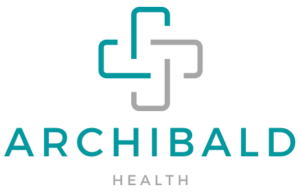Understanding SEO for Healthcare Professionals in Allied Health Fields
In the ever-evolving landscape of healthcare, professionals in allied health fields are recognizing the importance of having a robust digital presence. The key to achieving this lies in leveraging Search Engine Optimization (SEO) practices. SEO is a collection of strategies and tactics used to increase the quantity and quality of website traffic through organic search engine results.
This introductory guide explains how SEO is not just for other industries but is crucial for healthcare providers striving to improve their online visibility and reach more patients. Our comprehensive and tailored Medical SEO strategies can help propel your website to the top of Google search results for selected keywords, reinforcing your status as a leading healthcare provider in your area.
This guide will navigate the importance of SEO for healthcare professionals, the difference between Organic SEO and Google Ads, and how choosing the right keywords can significantly impact your online presence. Learn to interpret SEO reports and understand the importance of website traffic and its sources. By the end of this guide, you’ll see how SEO isn’t just a good-to-have, but a must-have for every healthcare professional in allied health fields.
The Role of SEO for Healthcare Providers In today’s digital age, patients increasingly search for their next healthcare provider online. For instance, someone looking for a physiotherapist in Brisbane might Google “physiotherapist Brisbane”. They’re then likely to reach out to one of the services that appears on the first page of results. This is where the power of SEO comes in. It’s crucial for your healthcare services to rank on the first page of Google search results for searches relevant to your field. To succeed in a modern, digital-first healthcare sector, your website needs to rank high for relevant keywords, such as “[Your speciality] + [Your city]”.
SEO for Healthcare – Organic SEO vs Google Ads?
Understanding the difference between Organic SEO and Google Ads is important. Google Ads is when you pay Google to feature your website as one of the four advertisements at the top of Google search results. Organic SEO, however, positions your website to appear in the actual search results. Both have their own merits. Google Ads can quickly put your practice at the top of the page, but it comes with a cost, especially if the keywords you’re targeting are highly competitive. As soon as you stop paying Google, your ads cease to appear. On the other hand, Organic SEO is a more affordable and long-lasting strategy. Your website can top real Google search results, helping patients find the most relevant provider for their needs. Moreover, organic SEO can potentially keep you at the top for several months, and with ongoing SEO services, indefinitely.
Choosing the Right Keywords for SEO Determining which keywords to use is vital. We ensure that the keywords are actually being used because there’s no merit in ranking high for seldom-used keywords. We also select keywords that correctly highlight the services you offer. For example, if you provide rehabilitation services, we may include keywords that relate to the specific rehab services you want to promote. To avoid competing with healthcare providers worldwide, we suggest that keywords include your geographic area, whether that’s your city, state, or county.
Getting started with SEO as a healthcare professional involves several key steps:
- Website Audit: The first step is to perform a website audit. This involves assessing your existing website’s performance, identifying areas for improvement and understanding how well it’s currently optimized for search engines.
- Keyword Research: Identify keywords that your potential patients might use when searching for your services online. These keywords should be relevant to your specialty and location. For example, you might choose “cardiologist in Denver” or “pediatric dentist in Austin.” Use tools like Google’s Keyword Planner to help you find the most effective keywords.
- On-Page SEO: Once you’ve identified your keywords, incorporate them into your website content, meta descriptions, and ALT tags for images. However, it’s essential to make sure your content reads naturally and is of high quality. Overstuffing keywords can harm your SEO efforts.
- Off-Page SEO: Off-Page SEO includes actions taken outside of your own website to affect your rankings within search engine results pages. This includes building high-quality, relevant backlinks to your website, directory listings, and maintaining an active presence on social media.
- Local SEO: For healthcare professionals, local SEO is crucial. Your patients are likely located in the same geographical area as your practice. Setting up a Google My Business page, including your practice in local directories, and seeking reviews from happy patients all boost your local SEO.
- Mobile Optimization: More and more people use their mobile devices to search for healthcare providers. Ensuring your website is mobile-friendly is critical to maximizing your reach.
- Monitor and Analyze: SEO isn’t a set-it-and-forget-it type of activity. Monitor your website’s performance regularly and make necessary adjustments. Google Analytics is a useful tool for this.
Remember, SEO is a long-term strategy and it can take time to see results. However, when executed properly, it can result in increased visibility, more patient inquiries and ultimately, increased business growth. If you’re uncertain about doing it yourself, consider hiring a professional SEO service familiar with the healthcare sector. They’ll have the expertise and experience to optimize your online
